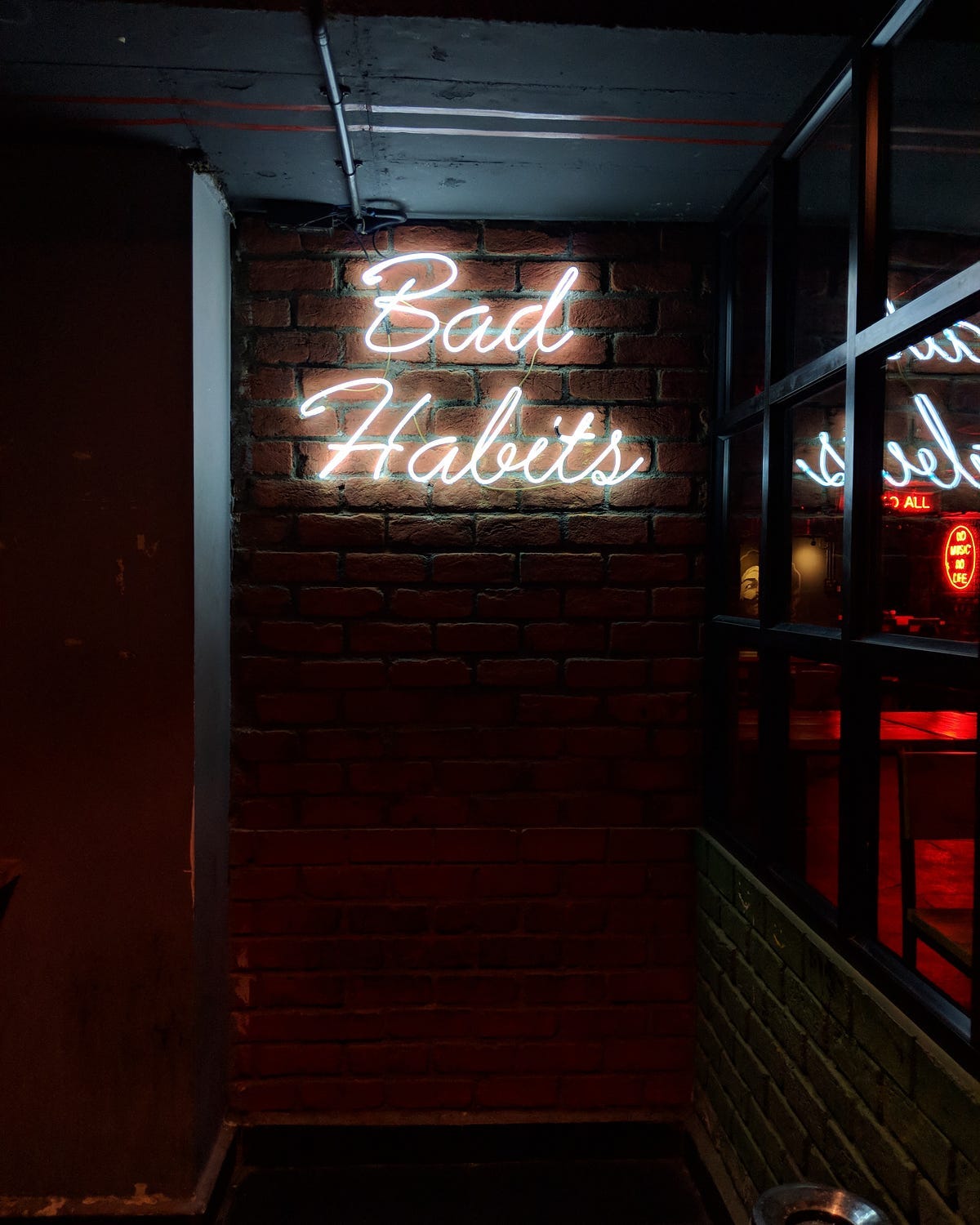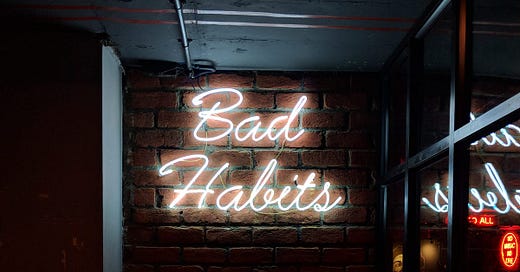Embrace Flaws and Transform Bad Habits into Assets
Discover the power of loving your Imperfections
Discover the power of loving your Imperfections

Amidst a popular self-improvement culture that often urges us to be something we’re not, the key to true success and happiness might just lie in embracing our messy, imperfect selves.
Rather than succumbing to guilt and shame, what if we strategically harnessed our worst habits to lead more fulfilling lives?
Here are some ideas on how to be intelligently lazy, moderately disorganized, and less mindful, all while cultivating a sense of self-compassion.
Make peace with your body on your terms
The body positivity movement, with its good intentions, may not resonate with everyone. Some suggest moving beyond body positivity towards body neutrality. Rather than striving to love our bodies unconditionally, I advocate finding peace with our bodies, acknowledging them as they are without judgment.
Body liberation takes it a step further by addressing systemic oppression and dismantling barriers to self-love.
Welcome brilliant laziness for authentic living
Encourage a unique approach to productivity. Instead of trying to do everything perfectly, just identify what truly matters to you and be cleverly lazy about the rest. By organizing your life based on personal values rather than societal expectations, you can lead a more authentic and fulfilling life.
Love negative emotions as tools for resilience
Toxic positivity, the tendency to dismiss negative emotions, can hinder genuine support.
Why not emphasize the importance of acknowledging and embracing negative emotions? By allowing ourselves and others to experience discomfort, we build resilience and equip ourselves to navigate challenges with greater ease.
Embrace controlled disorganization for efficiency
Challenging the societal norm that values neatness and organization, I suggest that moderate disorganization can lead to greater efficiency, resilience, and creativity. Pointing to historical figures like Albert Einstein, I argue that embracing a certain level of disorder can be beneficial.
In a society that often places a high premium on orderliness, the concept of controlled disorganization proposes that too much structure might stifle innovation and flexibility. By allowing for a moderate degree of disorganization, individuals and organizations may find that they become more adaptable and better equipped to navigate unexpected challenges.
Historical figures like Albert Einstein are often cited as examples of individuals who thrived in environments that may have appeared disordered to an outsider. Einstein himself famously quipped, “If a cluttered desk is a sign of a cluttered mind, of what, then, is an empty desk a sign?” This sentiment suggests that a certain level of disorder may be a natural byproduct of a mind engaged in complex and creative thinking.
Be mindful of mindlessness
Act contrary to popular beliefs about mindfulness, challenge the Western repurposing of meditation as a quick fix for crisis moments, and advocate for incorporating moments of mindlessness, allowing yourself to daydream and indulge in activities without constant self-awareness.
Work less, achieve more
Research spanning a century reveals the counter-productivity of overwork, and I claim that working fewer hours enhances productivity, happiness, and overall well-being. For most industries, shorter working hours make sense, fostering better performance and preventing burnout.
Cherish your clutter — a personal joy
Challenge the decluttering trend, and think about embracing any clutter that brings joy. Possessions hold emotional value and connect us to our past, making them an essential part of our identity. The mix of precious and incidental objects in our homes tells a unique story of our lives.

Reject the meaningfulness trap
We should question the modern obsession with finding meaning in everything.
The constant pursuit of meaning creates unnecessary pressure, and by recognizing a more relaxed perspective and realizing your own insignificance, you can find freedom and happiness.
Break free from dieting and cultivate self-compassion
I suggest treating ourselves with the same kindness we extend to our loved ones. Instead of focusing solely on weight loss outcomes, I encourage a holistic approach to food and body relationships, emphasizing the importance of self-forgiveness, compassion, and a mindful approach to eating.
Consider solo living for personal freedom
There is much to be said for the benefits of being single.
I would highlight the societal pressure to conform to relationship norms and challenge the notion that being single equates to loneliness. It is perfectly acceptable to celebrate the freedom and happiness found in solo living, emphasizing the ease and lack of compromise compared to being in a relationship.
Channel anger positively; it’s a catalyst for change
You should also look at the functional aspects of anger, distinguishing between in-the-moment anger and its constructive use in the future. By labeling and harnessing anger, individuals can address issues proactively, avoiding reactionary outbursts. So, I would suggest redirecting anger toward positive causes, such as improving workplace diversity or resolving conflicts.
Care less, live more
Consider adopting a mindset of caring less about societal expectations and prioritizing your well-being. Say no to external pressures and define your own values. By doing so, you’ll gain the freedom to live authentically without measuring yourself against societal standards.
Prioritize rest without guilt
It’s beneficial to emphasize the cognitive and physical benefits of rest. Encourage yourself to find restful activities that suit your preferences, debunking the notion that rest must be elaborate or expensive. Overcome societal expectations that value busyness and promote guilt-free rest as a crucial aspect of well-being.
Read for joy, not an improvement
Challenge the culture of constant self-improvement. Instead of succumbing to societal pressures for skill-based hobbies, go for the simple joy of reading a book. Pick up books that bring joy rather than adhering to external expectations.
Break free from constant connectivity
Address the anxieties surrounding constant connectivity, and try retraining your expectations around quick responses, reminding yourself that others might not care as much as you think. By stepping away from the pressure to constantly reply, you can reclaim your time and mental space.
Skip the resolutions: choose self-kindness
I say self-kindness over traditional resolutions. Approach yourself with love and kindness, challenge the societal pressure to conform to external expectations, and rather than hating yourself into change, let’s encourage a positive and loving journey of self-discovery and acceptance.
In a world obsessed with resolutions, opt for the transformative power of self-kindness. Take a journey of self-discovery and acceptance, and foster a positive and loving relationship with yourself that transcends what “normal” society expects from you.
Follow The Hub Publication for practical tips and inspiring stories.
Write For The Hub Publication — Submission Requirements
We amplify your bold voice and deliver your inspiring stories to our curious and hungry readers.thehubpublication.com




